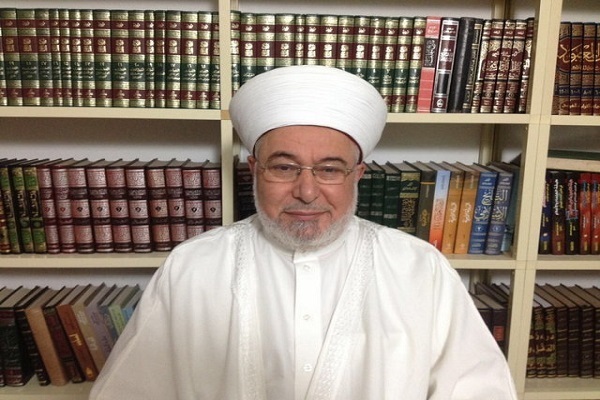AhlulBayt News Agency: A Lebanese thinker and scholar stressed that God has introduced the components of Islamic unity in the verses of the Quran.
Head of Association of Muslim Scholars in Lebanon Sheikh Ghazi Hunaina made the remark in a speech delivered at the “Hajj, Quran-centrism, And Sympathy with Gaza” webinar.
The online seminar was organized by the International Quran News Agency (IQNA), on Monday, June 10.
He said God has invited all Muslims to get united. He noted that in verse 92 of Surah Al-Anbiya, God says: “Indeed, this nation of yours is one nation, and I am Your Lord, therefore worship Me.”
Sheikh Hunaina also cited Verse 52 of Surah Al-Muminoun and Verse 10 of Surah Al-Hujurat, highlighting the Quran’s emphasis on unity and fraternity among Muslims.
He said God has defined the ways and components of unity, one of which is Tawheed (monotheism).
Anyone who wants to become a Muslims must utter the phrase “There is no God but Allah and Muhammad (PBUH) is His messenger”, he noted, adding that this is a factor uniting all Muslims.
The Holy Kaaba, which all Muslims anywhere in the world face when saying prayers is another component of unity, he said, citing Verse 150 of Surah Al-Baqrah: “From wherever you emerge, turn your face towards the Sacred Mosque, and wherever you are, face towards it, so that the people will have no argument against you, except the harmdoers among them.”
Salah (prayers), Wudu (ablution), fasting, Hajj, and Zakat are among other factors of unity in the Muslim Ummah, the cleric went on to say.
Sheikh Hunaina underlined that Muslims must act the way God has taught them to be in His Book and the Holy Prophet (PBUH) has guided us in his Seerah.
Other speakers at the Monday webinar were University of Tehran Professor Mohammad Ali Azarshab, Head of Union of Ahl al-Bayt Scholars of Turkey Ghadir Akaras, Head of Malaysian Consultative Council of Islamic Organizations (MAPIM) Muhammad Azmi Abdulhamid, and Canadian Islamologist John Andrew Morrow.
/129
Head of Association of Muslim Scholars in Lebanon Sheikh Ghazi Hunaina made the remark in a speech delivered at the “Hajj, Quran-centrism, And Sympathy with Gaza” webinar.
The online seminar was organized by the International Quran News Agency (IQNA), on Monday, June 10.
He said God has invited all Muslims to get united. He noted that in verse 92 of Surah Al-Anbiya, God says: “Indeed, this nation of yours is one nation, and I am Your Lord, therefore worship Me.”
Sheikh Hunaina also cited Verse 52 of Surah Al-Muminoun and Verse 10 of Surah Al-Hujurat, highlighting the Quran’s emphasis on unity and fraternity among Muslims.
He said God has defined the ways and components of unity, one of which is Tawheed (monotheism).
Anyone who wants to become a Muslims must utter the phrase “There is no God but Allah and Muhammad (PBUH) is His messenger”, he noted, adding that this is a factor uniting all Muslims.
The Holy Kaaba, which all Muslims anywhere in the world face when saying prayers is another component of unity, he said, citing Verse 150 of Surah Al-Baqrah: “From wherever you emerge, turn your face towards the Sacred Mosque, and wherever you are, face towards it, so that the people will have no argument against you, except the harmdoers among them.”
Salah (prayers), Wudu (ablution), fasting, Hajj, and Zakat are among other factors of unity in the Muslim Ummah, the cleric went on to say.
Sheikh Hunaina underlined that Muslims must act the way God has taught them to be in His Book and the Holy Prophet (PBUH) has guided us in his Seerah.
Other speakers at the Monday webinar were University of Tehran Professor Mohammad Ali Azarshab, Head of Union of Ahl al-Bayt Scholars of Turkey Ghadir Akaras, Head of Malaysian Consultative Council of Islamic Organizations (MAPIM) Muhammad Azmi Abdulhamid, and Canadian Islamologist John Andrew Morrow.
/129

